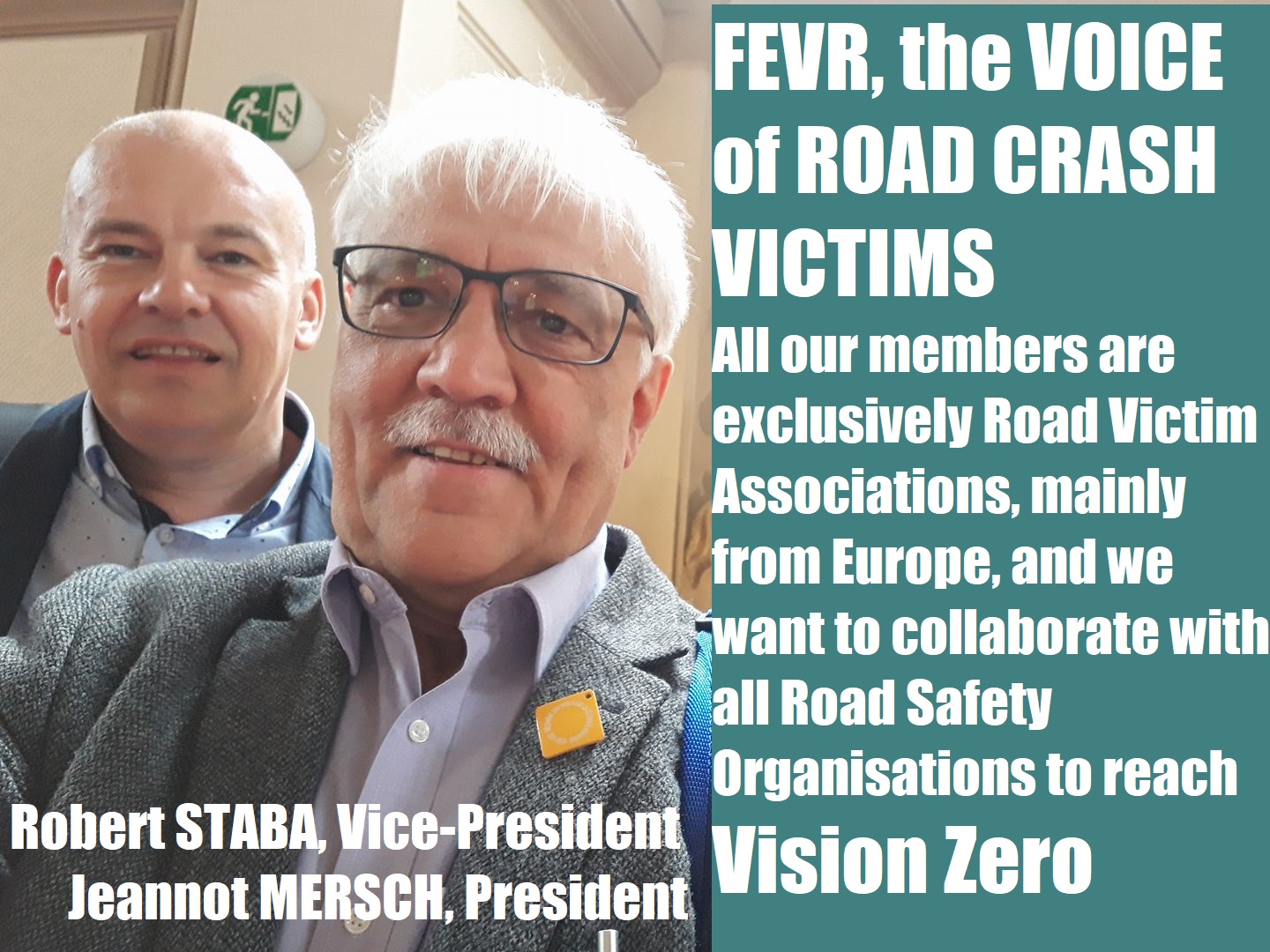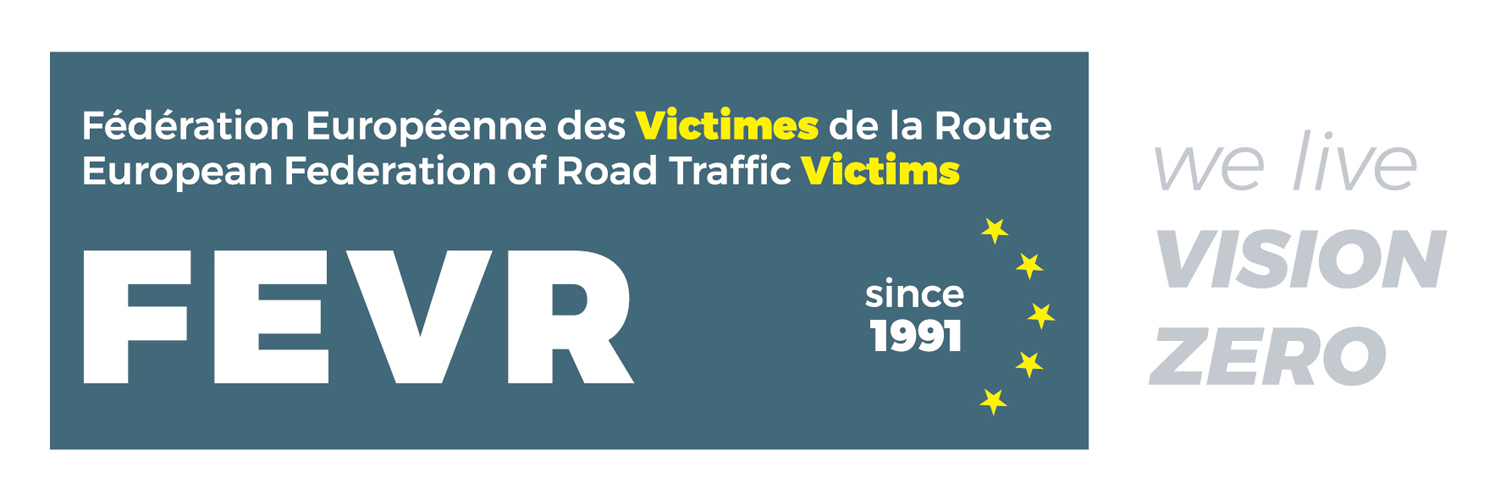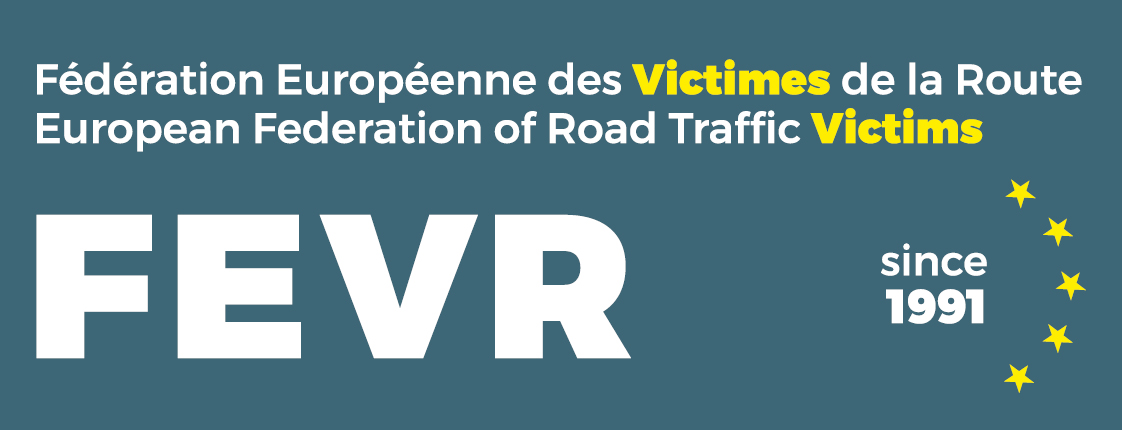NGO Network
Twinning with Road Victim & Road Safety NGO's
FEVR and many of his member associations are also members of the Global Alliance of NGO's for Road Safety & Road Victims
Link
FEVR former Vice-president & Delegate for International relations Prof. Manuel Joao RAMOS is a board member of the Global Alliance
-NGO Declaration-
Summary of recommendations from NGOs advocating for road safety and road victims for the Decade of Action for Road Safety
Advocacy NGOs representing road victims and road users have a particular interest in an improved road safety situation, indeed a fatality free global road transport network.

Many were set up by people who have suffered bereavement or injury through a road crash and who were motivated by their personal suffering to help other victims or engage in prevention activities.
In May 2009, 70 NGOs from 40 countries came together for the first time in Brussels at a meeting hosted by the World Health Organisation.
Using their unique expertise and perspective, they compiled 33 recommendations to improve road safety. The 33 proposals appear under 5 topics, each with a brief introduction.
The key recommendations are presented in this summary.
-General Approach-
The road is a public domain as well as a network to link people.
Therefore NGOs call on Governments to:
Serious post crash response is a vital component of effective road safety policy and includes:
It is essential to return to sustainable mobility modes in face of the enormous cost in human lives and the effect of pollution on climate change.
Therefore NGOs ask that Governments pay particular attention:
In May 2009, 70 NGOs from 40 countries came together for the first time in Brussels at a meeting hosted by the World Health Organisation.
Using their unique expertise and perspective, they compiled 33 recommendations to improve road safety. The 33 proposals appear under 5 topics, each with a brief introduction.
The key recommendations are presented in this summary.
-General Approach-
The road is a public domain as well as a network to link people.
Therefore NGOs call on Governments to:
- change drastically transportation policy, giving top priority to safety and sustainable mobility
- address traffic-danger related injuries and mobility as a public health and human rights issue
- design roads taking account of the role of the public space and rights /needs of vulnerable users
- employ more appropriate terminology such as Crash, Collision, Injury, in place of ‘accident’
- lead by example in managing risks
- provide resources for research and strict enforcement and reform of traffic laws
- establish a sustainable financing mechanism for road safety
- adopt global standards for traffic police and driver training and for all licences
Serious post crash response is a vital component of effective road safety policy and includes:
- immediate rescue interventions, thorough investigations, criminal and civil proceedings if appropriate, long-term rehabilitation and support.
- improved emergency services and early rehabilitation to minimize road traumay
- national standards of social, medical and legal care to injured victims and bereaved families
- thorough investigations in order to identify all preventable causes and ensure justice for victims
- an effective, proportionate and deterrent response to traffic law violations involving death or injury
It is essential to return to sustainable mobility modes in face of the enormous cost in human lives and the effect of pollution on climate change.
Therefore NGOs ask that Governments pay particular attention:
- to accommodating and integrating all different modes of mobility in the design of all roads
- to providing safety and comfort for vulnerable road users
NGOs offer to governments their cooperation, expertise and joint initiatives, in return for partnership, secure funding, and support for their work.
The NGOs propose:
- national advocacy networks – to ensure nationwide advocacy for road safety and road victims
- joint observance of the World Day of Remembrance, a Day initiated by victims, as an opportunity for highlighting the consequences of road danger and impact of road death and injury

